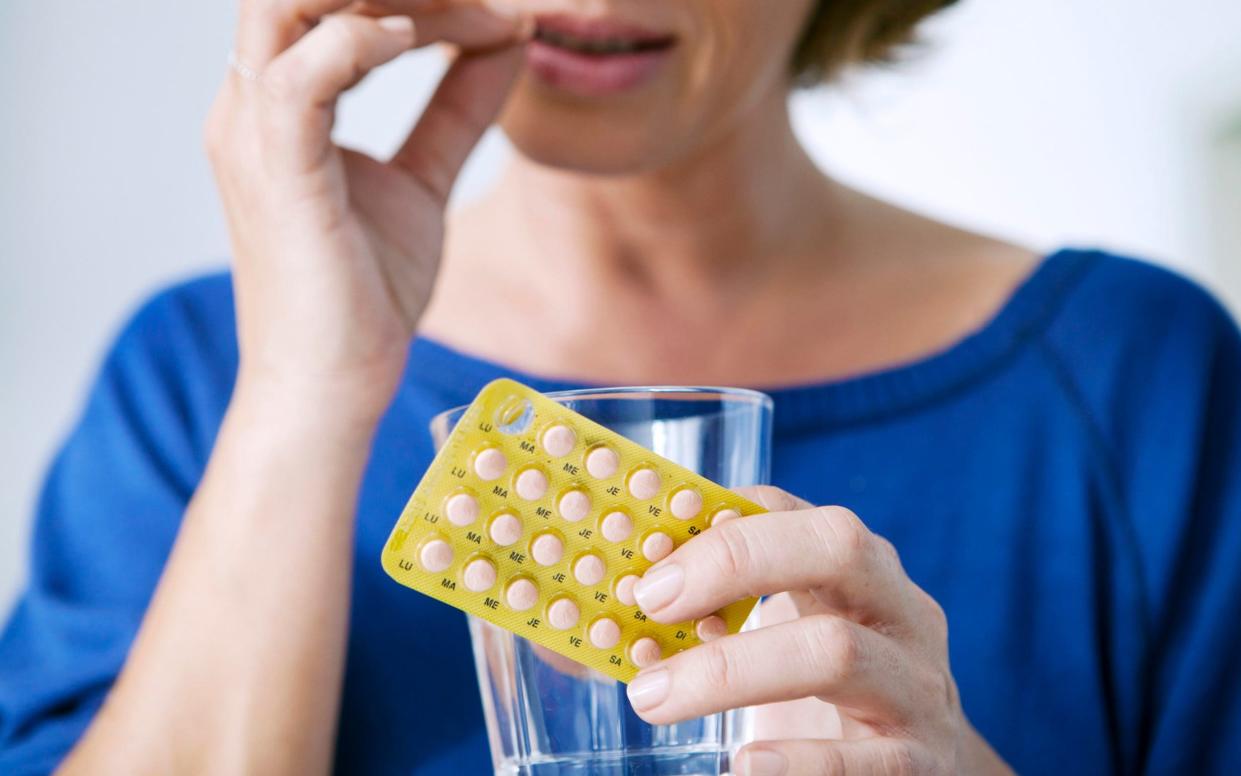Menopause marketed as a disease ‘to make money for drug companies’

Menopause is not a disease, but is being treated as such to make money for pharmaceutical companies, a Lancet paper has suggested.
Researchers said a “medicalised view of menopause” meant that countries like the UK were treating it as a medical disorder or hormone deficiency that required treatment, when it was part of healthy ageing.
They said “commercial interests” marketing menopause products and hormone replacement therapy (HRT) meant the small but serious risks of treatment were often downplayed or ignored.
Experts from King’s College London and the Royal Women’s Hospital in Melbourne, Australia, said too many health problems were being blamed on menopause without evidence to support it.
They said menopause should not be seen as “something to fear” and was often too negatively depicted.
While HRT had been shown to improve sleep, memory and concentration in women taking it for hot flushes, it was “unlikely to have any effect in women without” flushes, they said.
In the papers, the authors argued there was a lack of data on whether health problems were caused by menopause or simply by ageing.
For example, although bone density was known to decline after menopause, “whether menopause at the average age increases other chronic conditions such as diabetes, dementia, or cardiovascular disease is uncertain”, they said.
‘Changing the narrative’
Series co-author Prof Martha Hickey, from the University of Melbourne and Royal Women’s Hospital, told a briefing that “menopause is not a disease”.
She said: “The misconception of menopause as always being a medical issue which consistently heralds a decline in physical and mental health should be challenged across the whole of society.
“Many women live rewarding lives during and after menopause, contributing to work, family life and the wider society.
“Changing the narrative to view menopause as part of healthy ageing may better empower women to navigate this life stage and reduce fear and trepidation amongst those who have yet to experience it.”

However, the reports quotes a review of evidence on menopause symptoms which found hot flushes and/or night sweats affect up to 80 per cent of women going through the menopause.
At the age of 50, almost four in 10 described symptoms as moderate to severe.
Dr Lydia Brown, from the University of Melbourne, said: “Whilst it’s certainly the case that some women have extremely negative experiences of menopause and benefit from hormone therapies, that isn’t the whole picture.
“The reality is much more complex and varied, with some women reporting neutral experiences and others highlighting good aspects, such as freedom from menstruation and menstrual pain.
“Menopause is having a cultural moment, and this is an opportunity for it to be recognised as a natural part of healthy ageing for women which, with the right preparation and support, is not something to fear.”
Media messaging
The authors suggested commercial interests, such as organisations which are marketing menopause products to consumers including pharmaceutical companies and private providers, have strongly influenced media messaging about menopause and menopause hormone therapy.
They said other midlife experiences – such as working, caring for children and looking after elderly parents – could cause or worsen mood changes and sexual problems which were blamed on the menopause.
If women want HRT, medics should provide “realistic information about the likely effects of treatment, the potential for residual symptoms, and the possibility that symptoms could recur when treatment stops,” the papers state.
The team suggests medics should discuss the use of cognitive behavioural therapy to treat hot flushes and night sweats.
Draft guidance from the National Institute of Health and Care Excellence recently said the treatment could help reduce hot flushes, prompting criticism from those questioning a lack of evidence that it could tackle physical symptoms.
‘Increased risk of disease’
Dr Louise Newson, a GP and menopause specialist running Newson Health, said: “Menopause is more than a collection of symptoms; it is a cardiometabolic and inflammatory condition which leads to an increased risk of numerous diseases.
“Menopause has been ‘medicalised’ for years – including with antidepressants, antipsychotics, painkillers, sleeping tablets, anticholinergics to treat bladder symptoms, and heart medications to lower cholesterol, reduce blood pressure and control palpitations.
“The first-line treatment for menopausal symptoms is body-identical HRT.”
“Studies have shown that when women are given the right dose and type of hormones, their symptoms improve, and they have a lower risk of numerous long-term inflammatory diseases associated with menopause including diabetes, cardiovascular disease, osteoporosis, dementia, and depression as well as early death.”
She said: “Talking about menopause as being a ‘natural transition’ or part of ‘healthy ageing’ ignores the very real suffering of many women with menopausal symptoms.”

